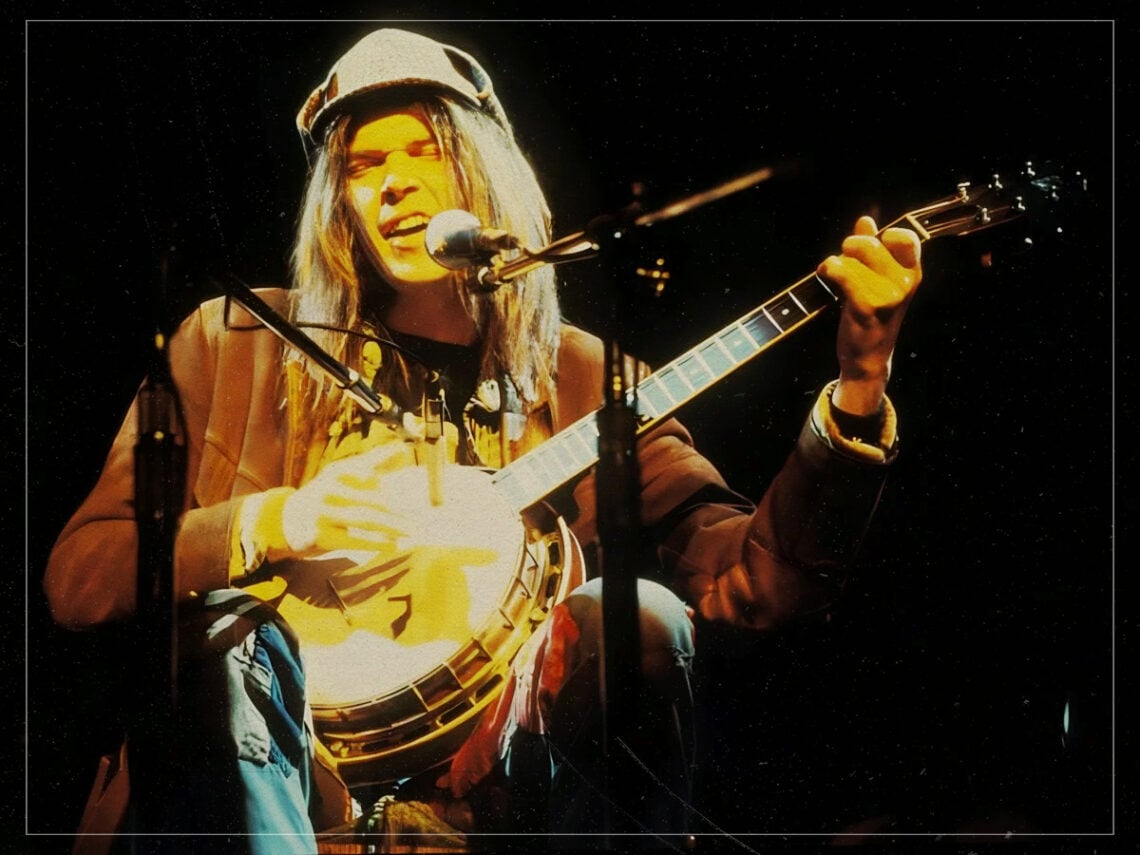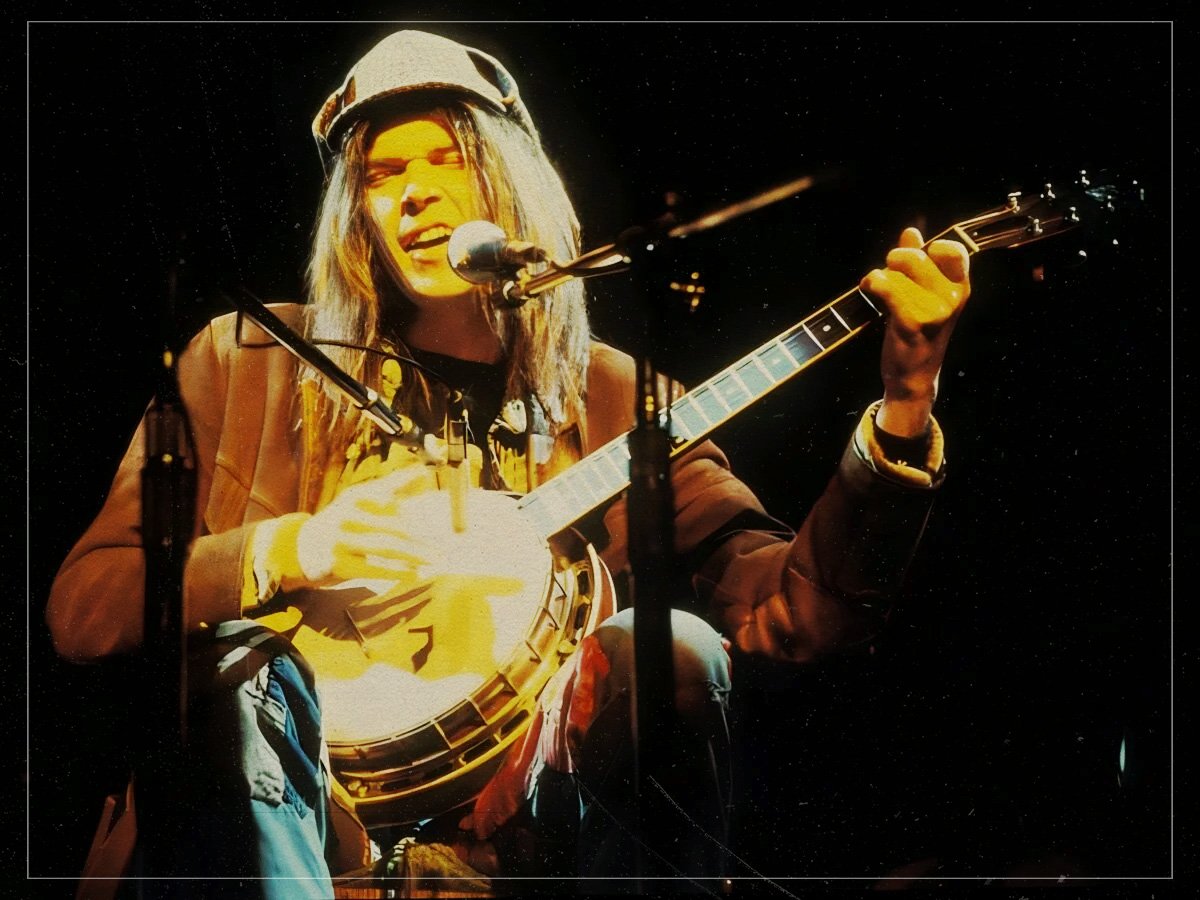
(Credits: Far Out / Alamy)
Wed 17 September 2025 21:03, UK
Neil Young never wanted to be stagnant at any point in his career.
Any great artist knows how to evolve their sound over time, and even if not every track ended up being an absolute masterpiece, Young would have rather gone down the tubes doing what he loved than having to worry about the sales figures of every record. But being a music fan also means having to get used to the differences in technology whenever something new comes along.
After all, the age of streaming would have left a lot of musicians baffled had they known about what it could do in, say, 1985. The whole point of streaming may have taken a massive chunk of the revenue away from record sales, but that has helped put more emphasis on an artist’s touring life, usually leading to them becoming road dogs in between making most of their records.
That might be a massive double-edged sword for those that hate touring, but it’s not like streaming doesn’t have its own benefits. Most people growing up at the time Rust Never Sleeps hit shelves wouldn’t have been able to afford every album they thought was interesting, so having an endless amount of albums online at the click of a button has at least helped people be a bit more adventurous rather than listening to whatever came off the radio.
If anything, Young did see the merit in using new technology, but he did realise when the business was going overboard with everything as well. His music always worked best when it sounded like a full band jamming in the middle of a studio, so when all of those human elements are stripped away, it can get a bit monotonous to his ears after a while. And once MTV kicked in, he wanted no part of that flavour of music.
‘This Note’s For You’ was already Young lambasting the commercial part of MTV, but it wasn’t about the commercial angle. Anyone who got into music not wanting to sell things certainly picked the wrong business to be in, but even if Young was willing to play that game, he never saw the point in having the massive reverb effects and overproduction on every single pop star that came out of the woodwork.
Music was changing in both quality and quantity, and while Young did benefit from the invention of the CD, he did feel that the definition of the sound had hit a bit of a lull, saying, “Sound quality hit the dark ages in the early ’80s. But it’s starting to come back thanks to DVD-Stereo. There’s just no comparison between that and a regular compact disc or even 5.1 sound. It’s the difference between a true reflection of the music and a mere replica.”
Young may have always been an aficionado for sound quality, but beyond his own work, it’s easy to hear the overproduction on many of the best albums of the 1980s. There are other acts like Tears for Fears who fully took advantage of new technology, but if we were to look at a band like Pink Floyd, A Momentary Lapse of Reason has great songs that have to be buried beneath a bunch of 1980s schlock on a CD that sounds like Gilmour trying out every modern cliche he could think of.
Even if Trans was Young’s failed attempt to embrace synth textures in his music, his grievances had to do with something far greater than whether the songs were there or not. Because in his mind, you could create one of the most stunning tracks that anyone had ever come up with, but if the raw recording doesn’t sound great, what’s the point in doing all that work?
Related Topics

